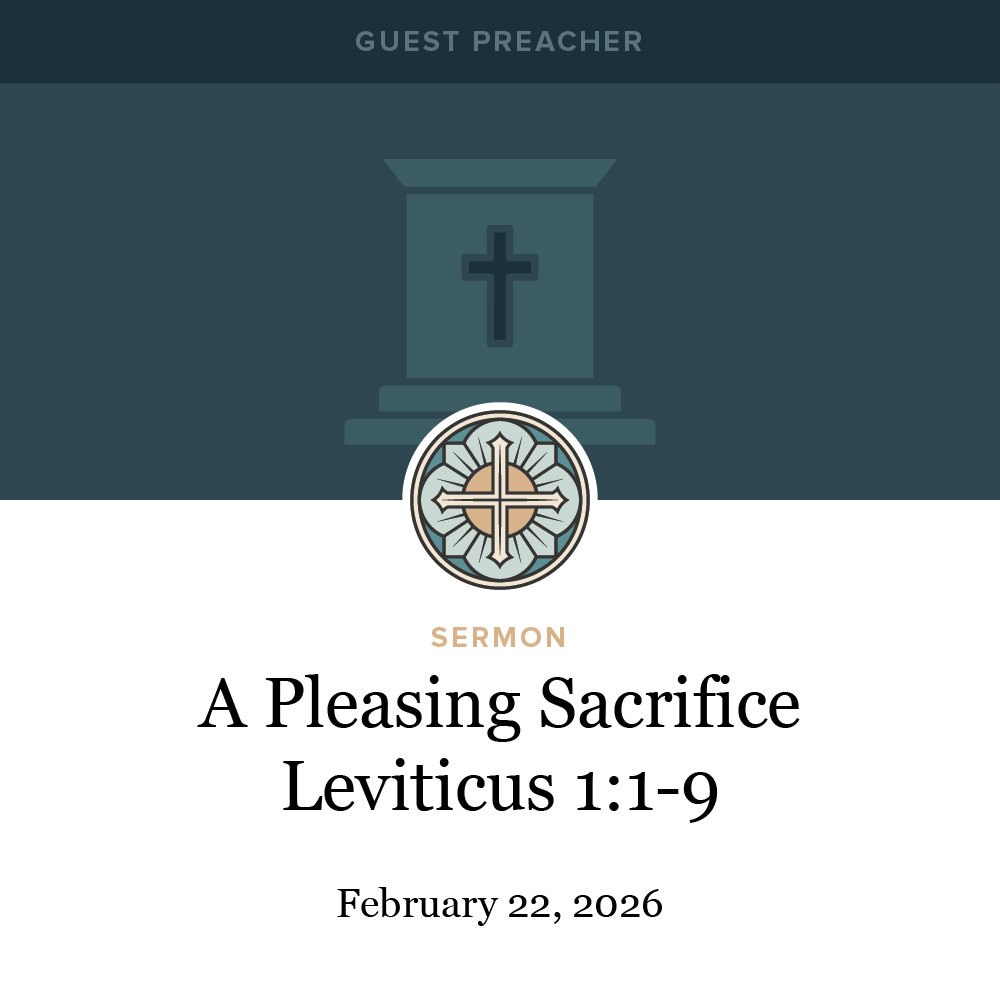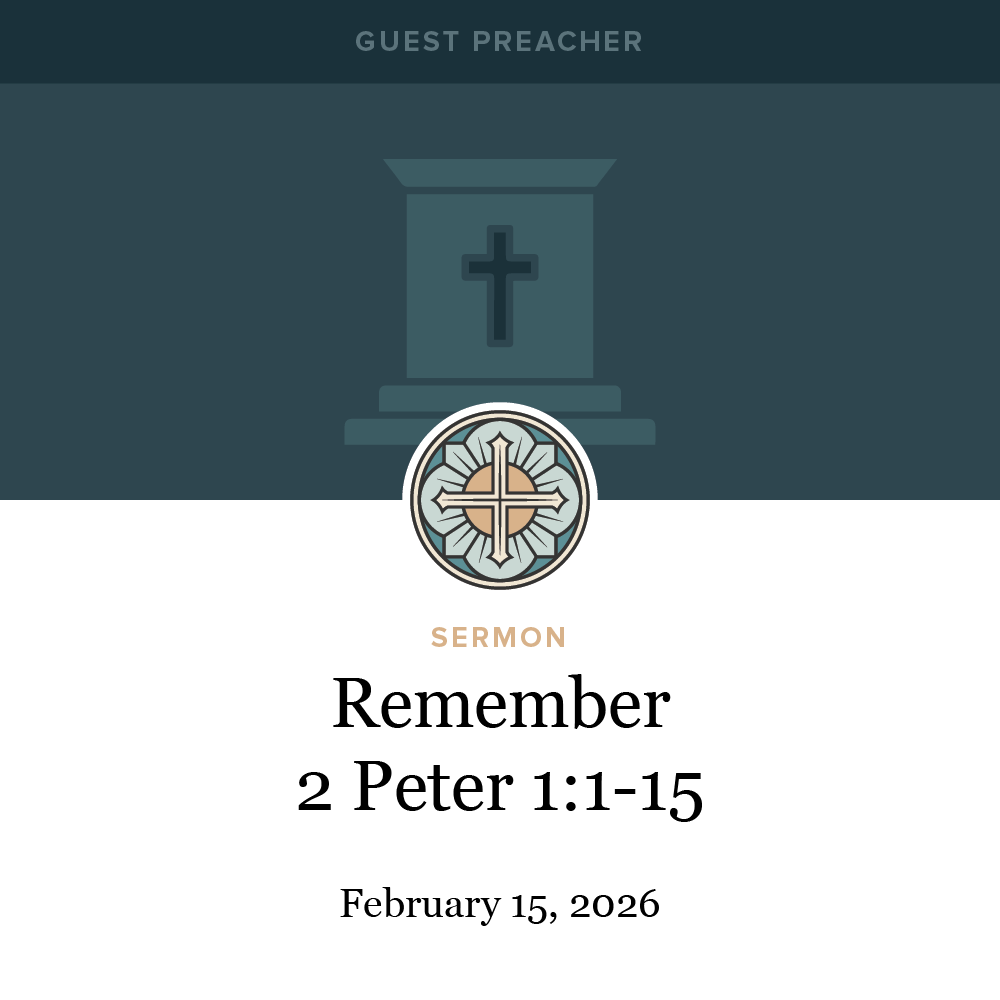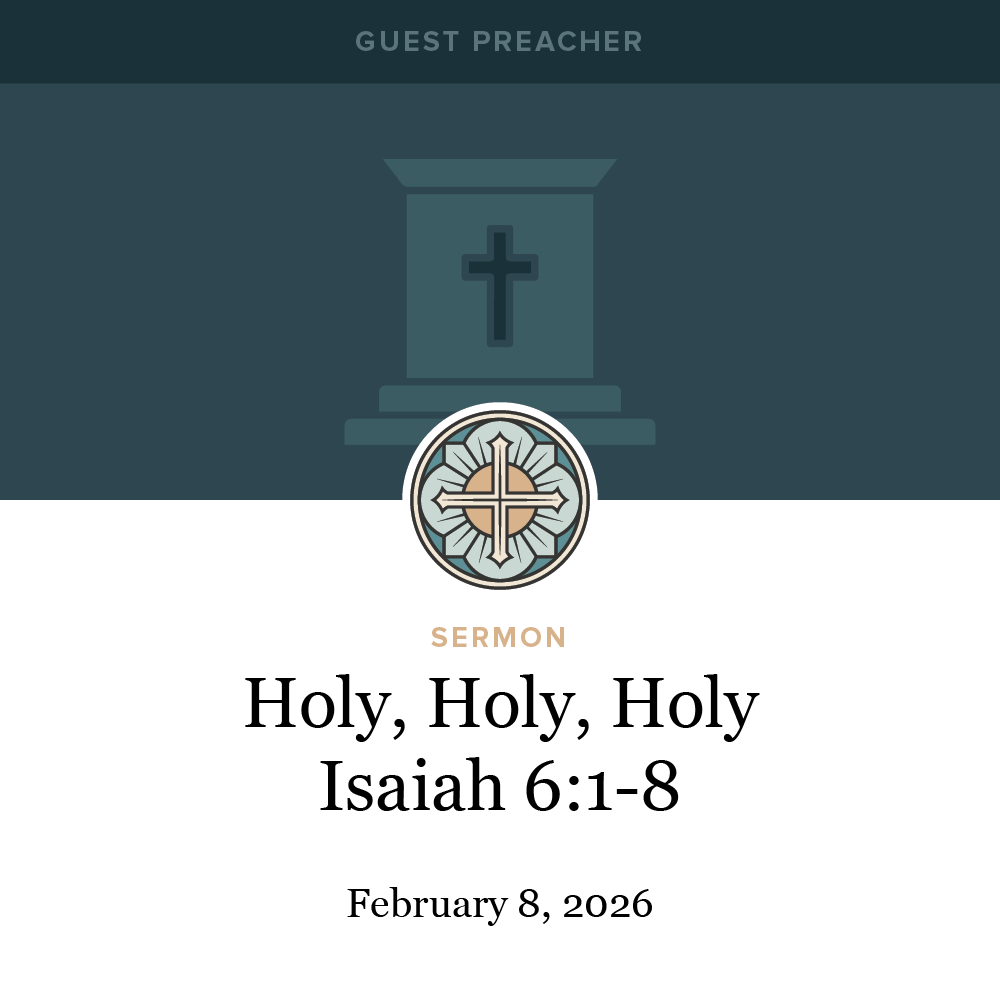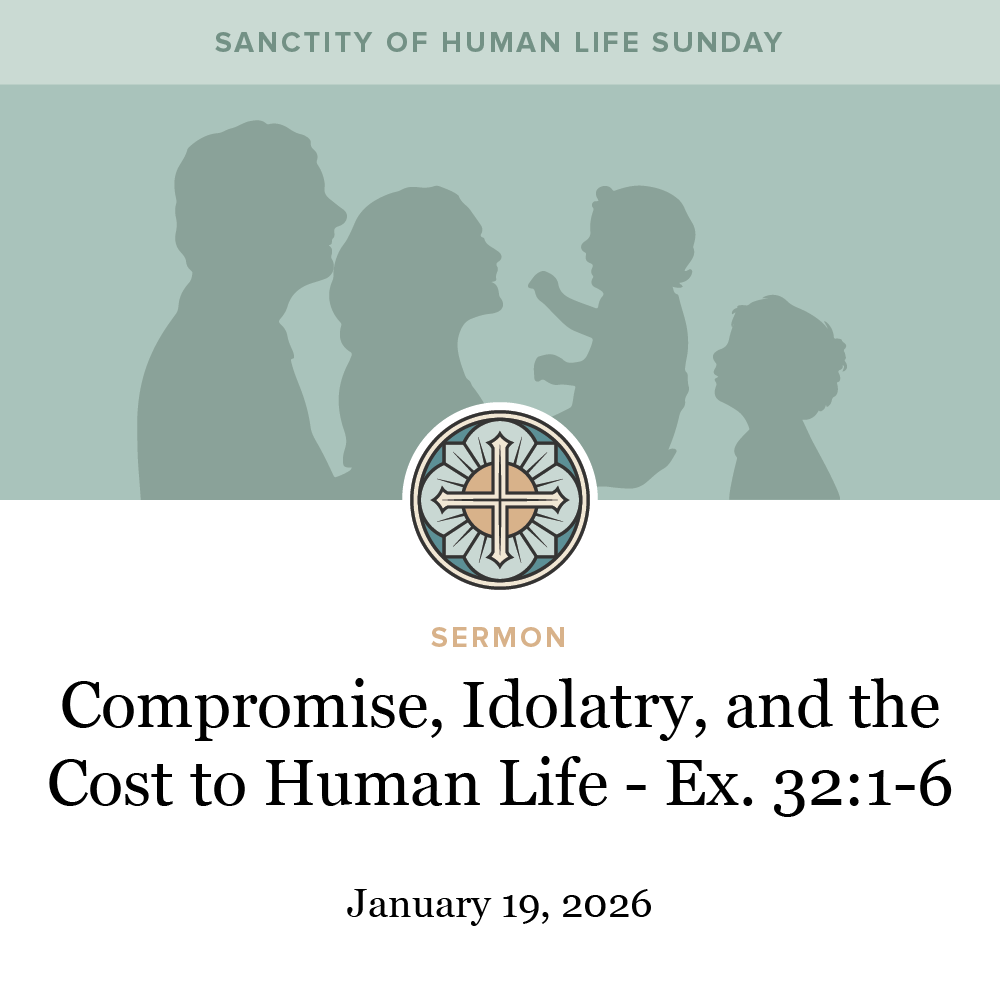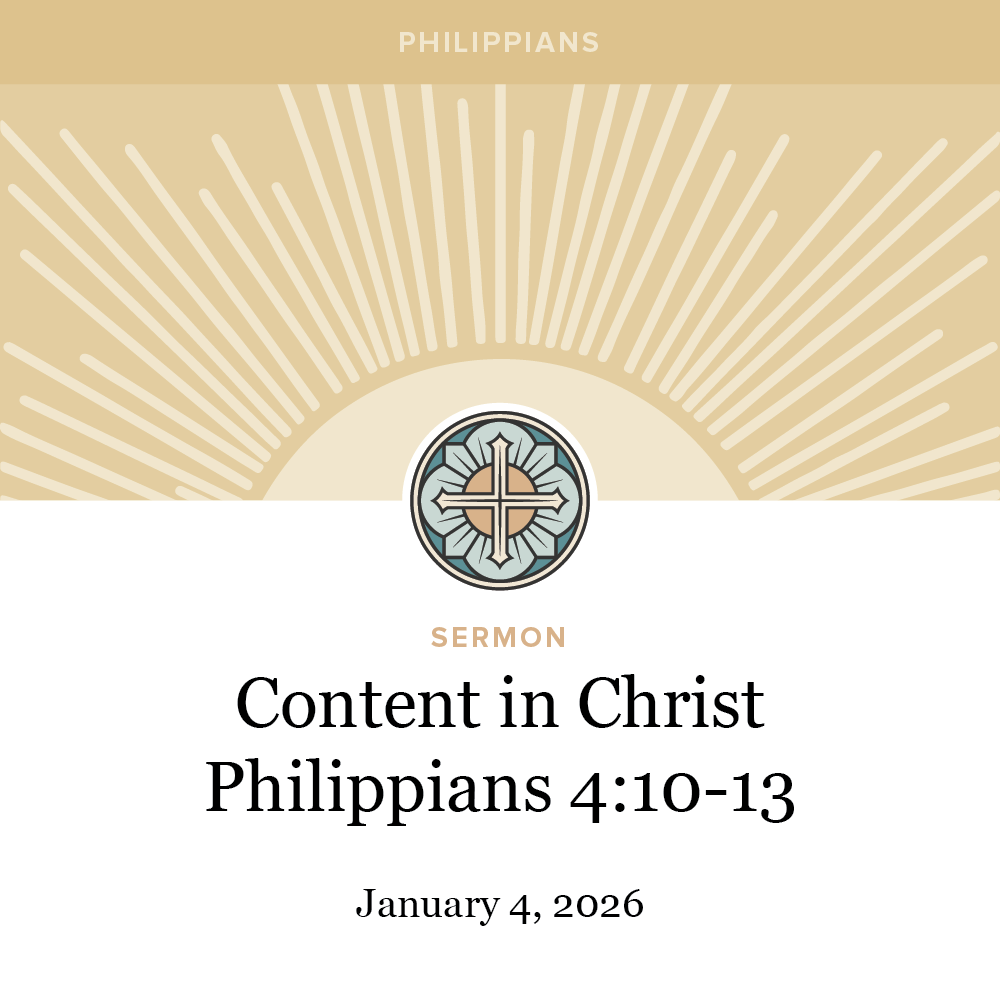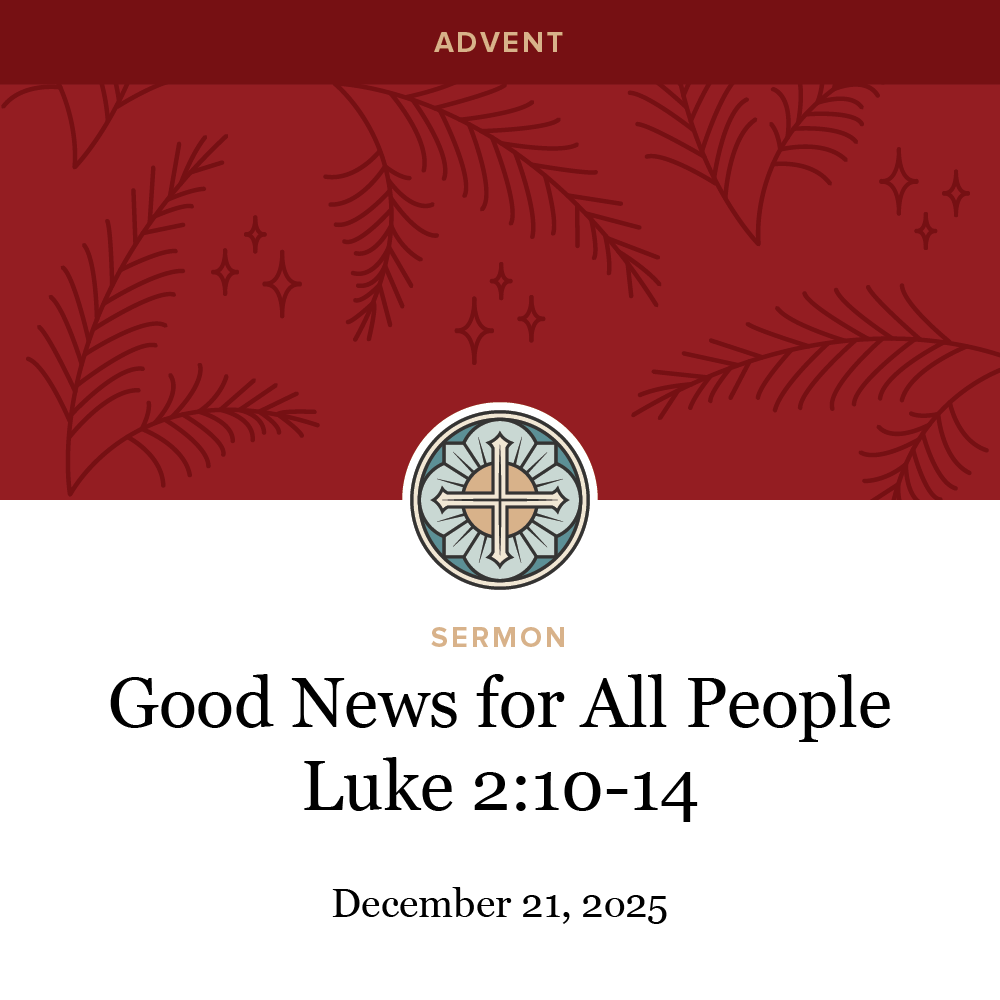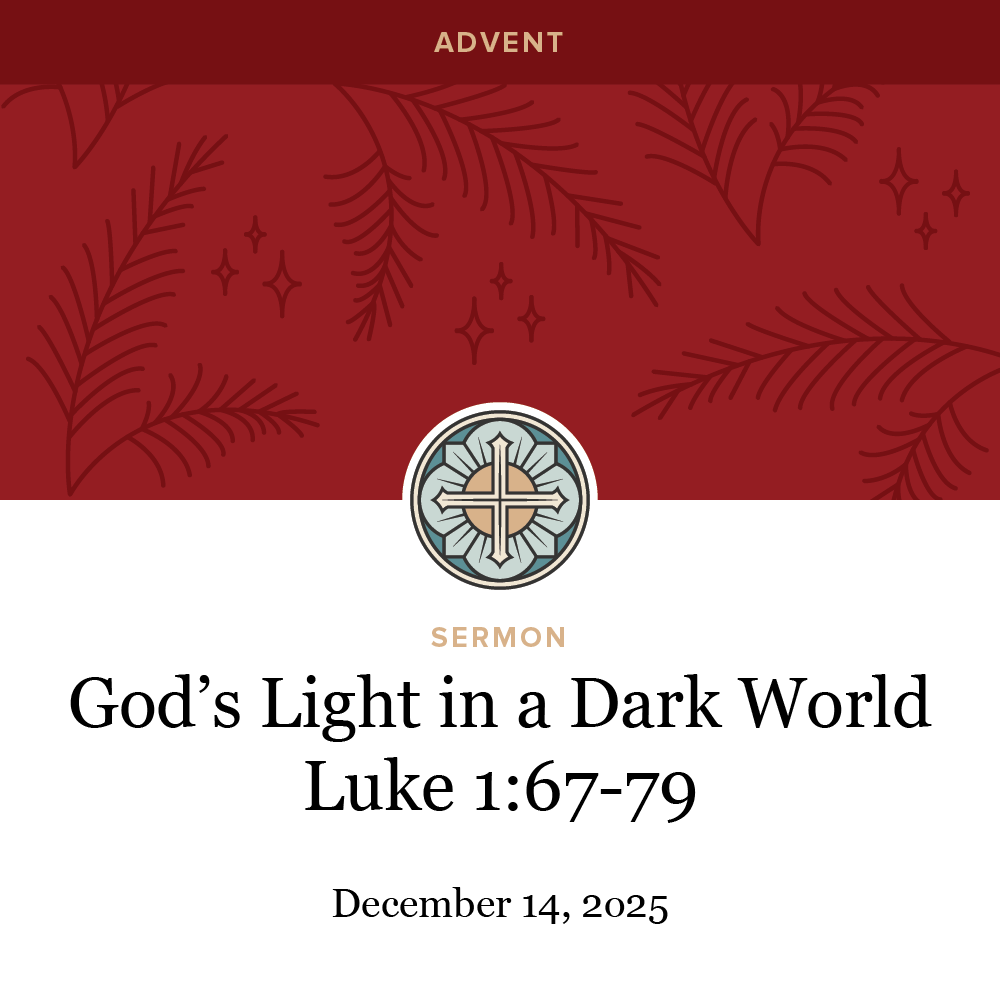Updates and Articles
A Pleasing Sacrifice - Leviticus 1:1-9
This past Sunday, Providence Presbyterian Church was blessed to have Rev. Andrew Newman from Fellowship Presbyterian Church in Greer, SC fill the pulpit.
Remember - 2 Peter 1:1-15
This past Sunday, Providence Presbyterian Church was blessed to have Rev. Aaron Roberts from Covenant Presbyterian Church in Harrisonburg fill the pulpit.
Holy, Holy, Holy - Isaiah 6:1-8
This past Sunday, Providence Presbyterian Church was blessed to have Rev. Richard Brueck fill the pulpit. Rev. Brueck is leading the church planting effort in Bedford, VA.
Compromise, Idolatry, and the Cost to Human Life - Exodus 32:1-8
We, the church, have to acknowledge our complicity in the abortion industry. Somehow, people think that their only option is to walk out of the church and straight into the abortion clinic. We’re doing something wrong.
The question of “what the church is doing wrong” admittedly has many answers, but one that consistently stands out to me is that the church is unwilling to confront idols.
Which, in many ways, was exactly what we just read from Exodus 32: Aaron, Moses’ own brother, the first high priest, the man responsible for leading worship in Israel, passively went along with their idol worship and then sought to blend it with the worship of the One True God.
Generous Giving, Generous Living - Philippians 4:14–23
Paul wants the Philippians to understand that their generous financial support was just incredibly helpful for him, it was going to be beneficial for them as well. In fact, Paul shares three reasons they, and by extension us, should be financially generous. First, you and I should understand that generosity supports the mission of the church (vv. 14-15). Second, generosity produces spiritual growth (vv. 16-17). And lastly, generosity requires you and I to rest in God’s sufficiency (vv. 18-23).
Content in Christ - Philippians 4:10-13
Our passage this morning is probably a familiar one to most of you. Especially verse 13: “I can do all things through him who strengthens me.” It’s been co-opted into a bumper-sticker inspirational slogan, but what we often fail to recognize is that it’s not a mantra, or inspirational quote. Rather Philippians 4:13 comes in the context of something that is rarely talked about today: contentment.
Let's Go to the House of the Lord - Psalm 122
David doesn’t speak negatively about worship as is so common today, in fact, everything David says is overwhelmingly positive. David teaches us that we shouldn’t just tolerate worship, rather we should long for it.
Good News for All People - Luke 2:10-14
But the birth of Jesus was different, because his birth wasn’t great news for just some people. His birth wasn’t just exciting for Mary and Joseph’s family. It was great news for all people. The entire world was going to change because of the birth of Jesus Christ. And so, when we think about this particular passage we have to ask ourselves several questions: first, why was it great news? Second, who would the great news affect? And lastly, how should we respond to this great news?
God’s Light in a Dark World - Luke 1:67-79
Distraction dulls our sense of need. It convinces us that everything is fine when it isn’t, that we are well when we are actually sick. And that’s precisely why reflecting on the advent of Jesus Christ is so significant. Christmas is not merely about comfort or nostalgia; it is about light breaking into darkness.
It is about Jesus shining His light into our distracted, shadowed hearts—calling us to repentance and leading us into true and lasting peace.
Advent Hope: Magnifying the Lord - Luke 1:46-55
You’d expect Mary to be consumed by the fact that God has assigned her to birth and raise the Messiah, which would have been one of the most humbling tasks ever. No doubt, Mary understands that, but it’s not the thing that has captured her heart and mind. What captured Mary’s heart and mind was God’s goodness and faithfulness.
Guarding Your Mind and Shaping Your Life - Philippians 4:8-9
Sin always begins in the heart long before it ever becomes visible in the life.
Most of us know that already. But what we often forget is the obvious implication: the primary battlefield of the Christian life is not your external behavior—it is the hidden places of your heart and mind. What fills your thoughts will eventually shape your words, your habits, and your character. What you meditate on today will become the kind of person you are a year from now.
That is precisely why Paul, in Philippians 4, doesn’t begin with techniques, programs, or quick fixes. He goes straight to the inner life of the believer.
Unity Rooted in the Lord - Philippians 4:2-7
And of course, not all conflicts and disagreements are created equal. Within the church, you have to distinguish big theological controversies that may be worth breaking fellowship over from the small, petty, insignificant disagreements. There are some sins that are so serious that Paul tells the church to purge the evil from your midst. And then there are situations where Paul tells two people to, “agree in the Lord.”
God of Creation or god of Your Belly - Philippians 3:17-4:1
We live in a world that tells us to follow our hearts, indulge our appetites, and pursue whatever makes us happy. Comfort has become the highest good, and pleasure the ultimate goal. But Scripture gives us a sobering warning — that the pursuit of comfort and self-gratification is not neutral; it reveals what we truly worship. The apostle Paul warns the Philippians of those who “walk as enemies of the cross of Christ,” whose “god is their belly.” They may claim Christ, but their lives tell a different story — they are ruled by desire, not by devotion.
Straining Towards the Goal - Philippians 3:12-16
What if the Christian life isn’t about finally arriving at comfort, success, or respect? What if it’s about running—straining—not for something temporary, but for something eternal? What if God never meant for you to settle into spiritual autopilot, but to live with a holy dissatisfaction—a contentment in Christ that still hungers for more of Him?
The Surpassing Worth of Knowing Christ - Philippians 3:1-11
I want you all to imagine standing before the God in the heavenly realm, as He’s seated on His throne, high and exalted, while the cherubim and the seraphim are all around crying out, “Holy, holy, holy, is the Lord of host; the whole earth is full of His glory!” And it’s in that exact moment, you begin to recall all the terrible things you’ve ever done—all the sins of your life come flooding back into your mind. What would you do at that moment?
The Only Name that Saves - Acts 4:8-12
Every year, on the last Sunday in October, we pause our current sermon series to reflect on the Protestant Reformation. And that’s because on October 31st, 1517 Martin Luther famously nailed his 95 theses to the door of the Wittenberg church—the moment historically credited with sparking the Protestant Reformation.
Ordinary Saints, Extraordinary Servants - Philippians 2:19–30
The Christian life is change. It’s growth. It’s transformation. It’s putting off the old self and putting on the new (Ephesians 4:22–24). The gospel never leaves a person where it found them. When Christ saves you, He begins a work in you—reshaping your heart, renewing your mind, and reorienting your desires toward His glory and the good of others.
That means Christians, of all people, should be the most humble and the most willing to grow. We should be quick to acknowledge sin, eager to learn, and ready to change when confronted with God’s Word. After all, the goal of the Christian life isn’t self-preservation—it’s Christ-conformation. You and I are supposed to become more and more like Jesus.
And that’s exactly what Paul shows us in Philippians 2:19–30. He doesn’t give us a lecture on humility this time—he gives us examples of it. After spending the first part of the chapter explaining what Christlike humility looks like in theory, Paul now introduces two men—Timothy and Epaphroditus—who embody that humility in practice.
Bright Lights in a Dark World - Philippians 2:12-18
Jesus said His followers are the light of the world, a city set on a hill that cannot be hidden. Faith that remains private is faith that fails to shine. God didn’t save us simply to keep us safe until heaven; He saved us to display His grace and truth through our lives right now. When we live out our faith publicly—with integrity, compassion, and joy—we show the world what God is like. Christianity isn’t a private belief system; it’s a visible testimony to the transforming power of the gospel.
The Model of Humility - Philippians 2:5-11
The point that the Apostle Paul is pressing upon the church in Philippi is the importance of their humility. And so, in order to further drive his point home, he points to the ultimate example of humility: Jesus Christ.
The Secret to Church Unity - Philippians 2:1-4
If someone asked you today to give them ten ways to unite a church, what would you say? Maybe you’d start with obvious answers: strong leadership, a clear vision or mission statement, engaging programs. A church without leadership or a clear direction can aimlessly wander about, but none of those things are what Paul points to. According to Paul, humility is the key to church unity.

